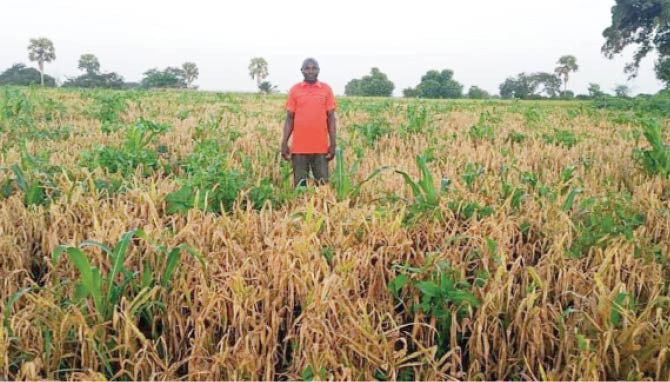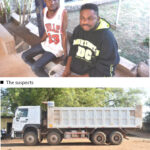Smallholder farmers in Benue State are optimistic about boosting production for food security if given the opportunity to freely access improved seeds and other inputs that are now far beyond their financial capability in the face of current economic reality.
Most of them have decried the high cost of seeds and other inputs for this season with some already concluding that they would not be able to till the grounds following the development.
Eleyi Adanu is one of such farmers who may not be able to till her field because she cannot afford seeds and other inputs to grow crops.
She said, “Farmers have begun to prepare their fields at the onset of the rains but I’m not doing so yet because I don’t have the financial capacity to purchase seeds, inputs and other production cost. I sold all my last year’s produce to solve family problems.
- Fungal infection: Kaduna ginger farmers count losses, struggle for survival
- Despite cost of inputs, Taraba rice farmers hopeful
“I’m quite sad about the situation but there is little or nothing I can do right now. Except a miracle happens, I’m likely not to plant any crop this year.”
Adanu seems not to be alone in this situation as some farmers in the state, due to insecurity which chased them away from their homes and farms, may end up not cultivating their fields this year while others lack the financial muscles to plow their own land.
To this end, an agricultural Foundation—Teryima and Msurshima—a few days ago distributed free seeds to enable those farmers quitting to go back to their farms.
The Foundation, owned by big time farmer Vitalis Tarnongu, targeted 1,000 smallholder farmers with the improved seeds to tremendously increase their yields while paying more attention to women, youths and the Internally Displaced Persons (IDPs) with the aim of enhancing their livelihood.
Lady Terna Comfort Swende, a beneficiary, who is Director in Charge of Women and Youth Development at the Bureau of Agricultural Development and Mechanization, hailed the gesture meant to help women and youths as well as the less privileged.
She said, “These seeds will go a long way because some people like to plant good seeds but they don’t have the money to buy them, especially peasant farmers—women and youths —even the less privileged who are sometimes described as the vulnerable group.
“It would really help for them to get free seed, more so, improved seeds. It will boost their farming activities. Seeds are very expensive now; a kilogram of seed is about N2,000 plus, so for Teryima and Msurshima Nigeria limited to give these seeds for free to farmers is to encourage them.
Adayi Joseph, State Coordinator for USAID Feed the Future and Agric Extension and Advisory Services Activities, applauded the initiative, saying it was a very big milestone in the development of agriculture in Benue State.
“Beyond international organisations always talking about development, it is high time we have indigenous bodies or foundations doing this. We know that the country is going through a lot of crisis, especially food insecurity currently and our farmers are facing a lot of challenges from access to improved seeds to improved farm inputs and all of that.
“Now, this is an individual doing this; given out improved seeds and inputs to small holders farmers. This is highly commendable, knowing that last season, our farmers lost a lot on the farms.”
Meanwhile, Vitalis Tarnongu, the owner of the Foundation, said the economic downturn and plight of the IDPs should not be a yardstick for food shortage and nutrition deficiency, which is why his team is interested in clustering women and youths, especially those in the IDP camps, into small farmers groups for crop production.
He revealed that his agricultural company works with over 2,000 farmers by providing seeds, technical assistance and buy back even as it teaches them to establish demo plots using Market II recommended practices.

 Join Daily Trust WhatsApp Community For Quick Access To News and Happenings Around You.
Join Daily Trust WhatsApp Community For Quick Access To News and Happenings Around You.


